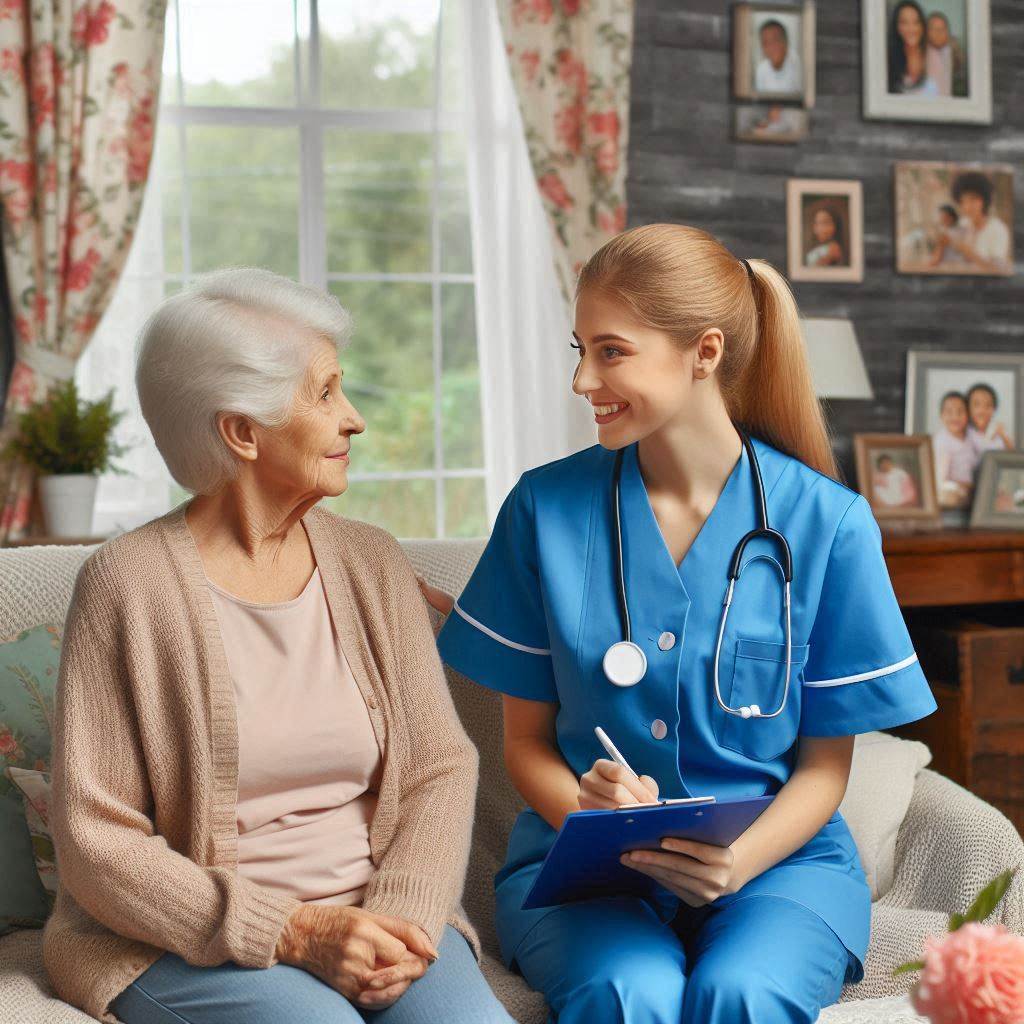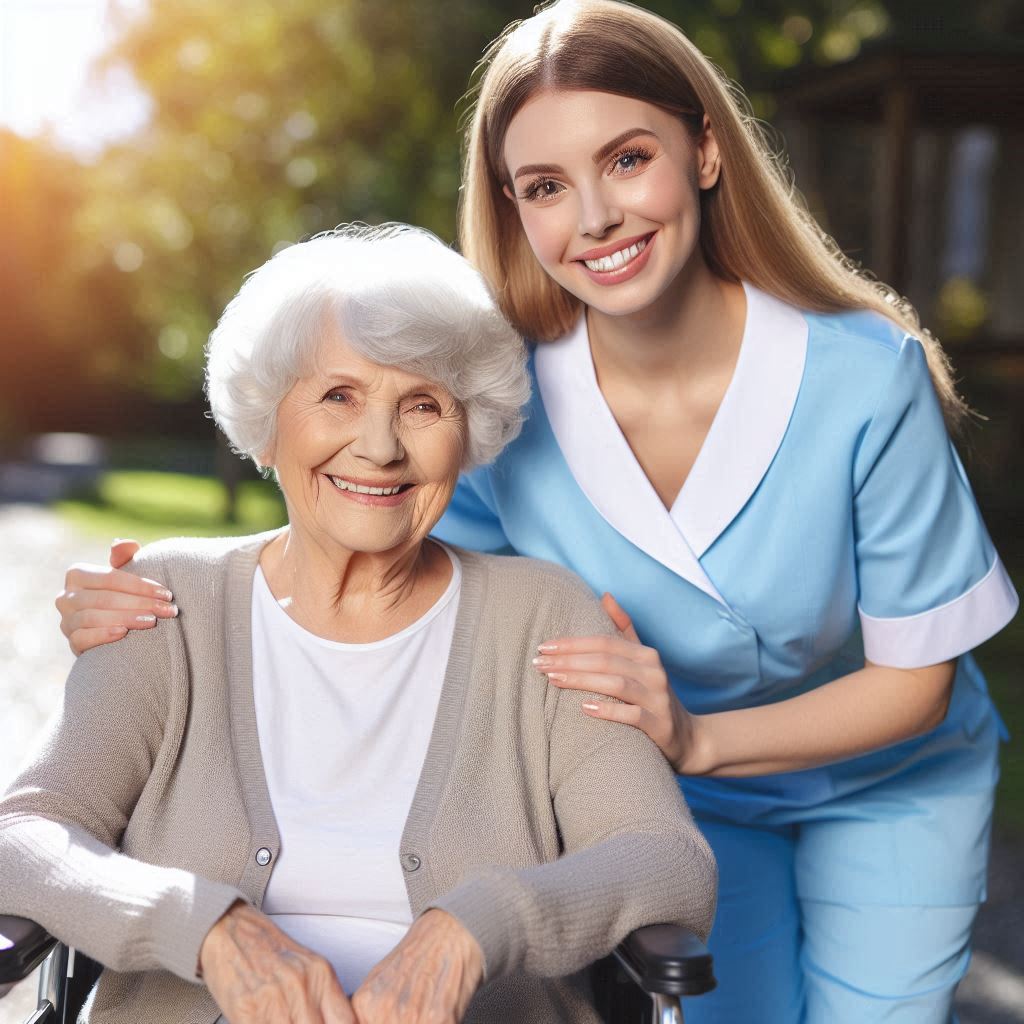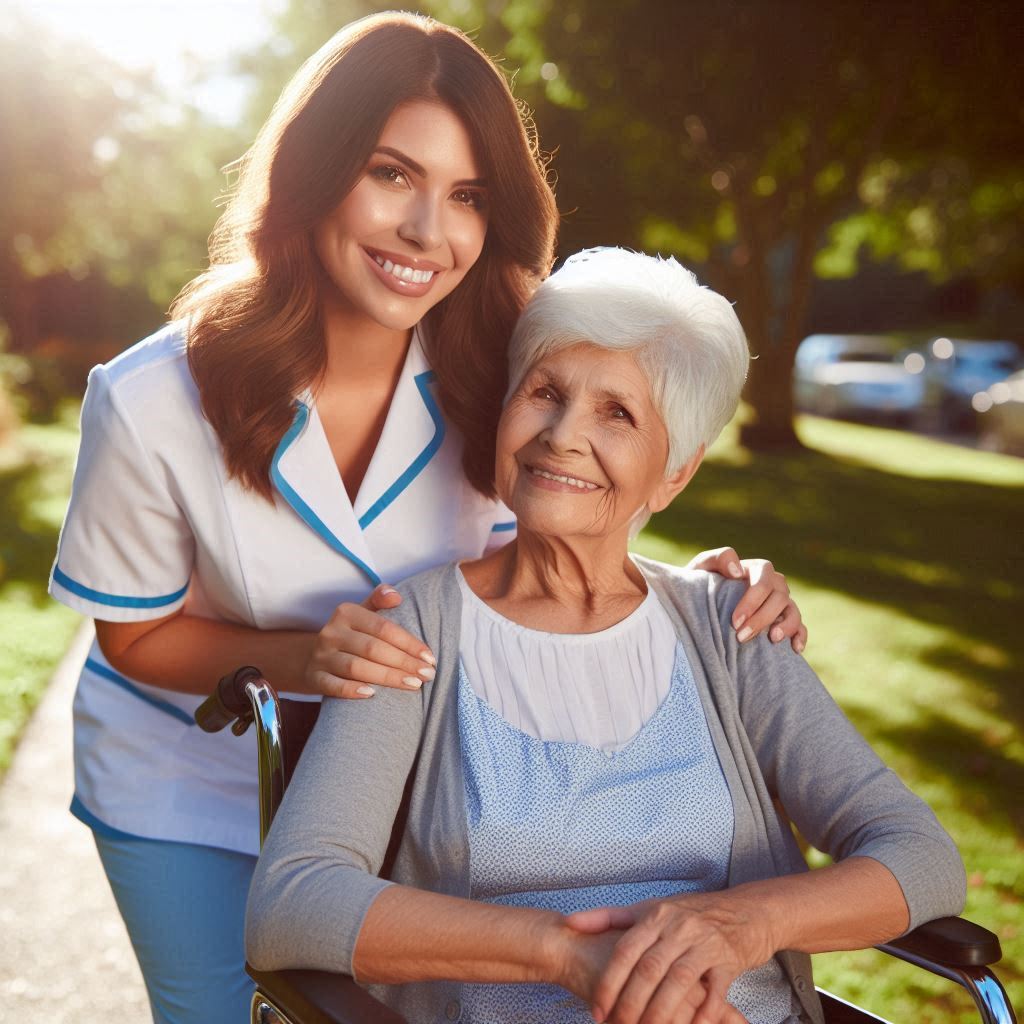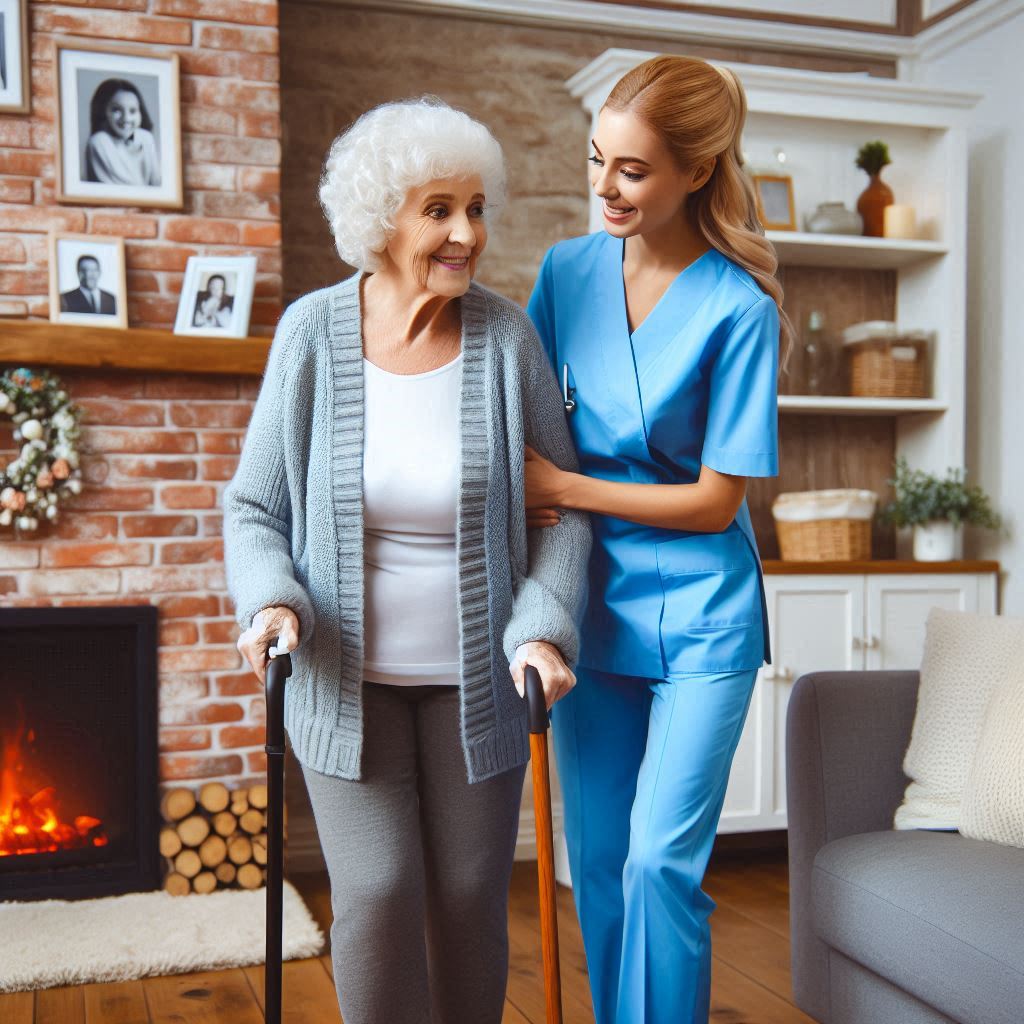Introduction
When considering the roles of a Home Health Aide (HHA) and a Personal Care Aide (PCA), it’s crucial to understand the distinctions between these two positions.
Both HHAs and PCAs provide essential care to individuals in need, but there are key differences that set them apart.
A Home Health Aide (HHA) is a trained professional who assists individuals with daily living activities, such as dressing, bathing, and medication reminders, in their own homes.
They may also provide basic medical care under the supervision of a nurse.
On the other hand, a Personal Care Aide (PCA) primarily focuses on providing non-medical support to clients, including meal preparation, light housekeeping, and companionship.
PCAs help clients maintain a sense of independence and well-being in their own homes.
Understanding the differences between HHAs and PCAs is essential for both clients and healthcare providers.
By knowing the unique responsibilities of each role, individuals can make informed decisions about the type of care that best meets their needs.
Healthcare providers can also ensure that they are matching clients with the appropriate level of care by distinguishing between the functions of HHAs and PCAs.
This can lead to improved outcomes and overall satisfaction for both clients and caregivers.
In fact, while both Home Health Aides and Personal Care Aides play vital roles in supporting individuals in their homes, it is important to recognize the distinctions between these positions to provide the best possible care and support for those in need.
Job Responsibilities of Home Health Aide (HHA)
Key Differences Between Home Health Aide and Personal Care Aide
When it comes to the healthcare field, there are different roles and responsibilities that professionals take on to ensure the well-being of patients.
Two common positions that are often confused are Home Health Aides (HHAs) and Personal Care Aides (PCAs).
While these roles may seem similar, there are some key differences that set them apart.
Let’s take a closer look at the distinctions between a Home Health Aide and a Personal Care Aide.
Education and Training
Home Health Aides typically receive formal training through a program approved by the state and must pass a competency exam.
On the other hand, Personal Care Aides usually do not require formal training and can learn on the job.
Job Responsibilities
As mentioned earlier, Home Health Aides provide medical care and assistance to patients under the supervision of a nurse or healthcare professional.
They are also responsible for assisting with activities of daily living, monitoring vital signs, and reporting any changes in the patient’s health condition.
Personal Care Aides, on the other hand, focus more on providing non-medical care to clients. This includes helping with tasks such as meal preparation, light housekeeping, and running errands.
They may also provide companionship and emotional support to individuals in need.
Supervision and Setting
Home Health Aides usually work under the supervision of a nurse or other healthcare professional in a home health agency or medical facility.
They follow a care plan that is developed by the healthcare team to ensure the patient’s needs are met.
Personal Care Aides often work independently or under the supervision of a family member or caregiver.
They may work in a variety of settings, including private homes, assisted living facilities, or group homes.
Certification and Licensing
In most states, Home Health Aides are required to be certified and licensed to practice.
They must meet certain training requirements and pass an exam to demonstrate their competency in providing care to patients.
Personal Care Aides may not be required to have certification or licensing, depending on the state or employer. However, some employers may prefer to hire candidates who have completed a training program or have relevant experience in caregiving.
Scope of Practice
Home Health Aides have a more medical-oriented scope of practice.
They are trained to provide basic medical care, such as changing dressings, administering medication, and monitoring vital signs.
They work closely with the healthcare team to ensure the patient’s health needs are met.
On the other hand, Personal Care Aides have a more personal care-focused scope of practice.
They assist with activities of daily living, provide companionship, and offer emotional support to clients.
Their main goal is to help individuals maintain their independence and quality of life.
In general, while Home Health Aides and Personal Care Aides both play vital roles in caring for individuals in need,
their job responsibilities, education requirements, and scope of practice differ significantly.
It is important for healthcare professionals and patients alike to understand these distinctions to ensure that patients receive the appropriate care and support they need.
Whether you are considering a career in healthcare or looking to hire a caregiver for yourself or a loved one, knowing the difference between these two roles can help you make more informed decisions.
Read: Ultrasound Technician vs. Radiologic Technologist

Job Responsibilities of Personal Care Aide (PCA)
Training and Certification Requirements for Home Health Aides (HHA)
When it comes to becoming a Home Health Aide (HHA), there are specific training and certification requirements that need to be met in order to provide care to patients in their homes. Here are the key points to consider:
Completion of a formal training program approved by the state
One of the first steps in becoming a Home Health Aide is completing a formal training program that is approved by the state.
These programs provide the necessary education and skills to care for individuals in a home setting,
including handling medical equipment, assisting with activities of daily living, and understanding patient rights and confidentiality.
Passing a competency evaluation to become certified
After completing the training program, individuals must pass a competency evaluation to become certified as a Home Health Aide.
This evaluation can include written exams, skills assessments, and demonstrations of proper care techniques.
It is essential for HHA’s to demonstrate their knowledge and abilities in order to provide quality care to patients.
Continuing education and in-service training to maintain certification
Once certified as a Home Health Aide, individuals must participate in continuing education and in-service training to maintain their certification.
This ongoing training ensures that HHA’s stay up-to-date on best practices, new regulations, and advances in healthcare technology.
It is important for HHA’s to continually improve their skills and knowledge to provide the best possible care to their patients.
In essence, becoming a Home Health Aide requires completion of a state-approved training program,
passing a competency evaluation, and participating in continuing education to maintain certification.
These requirements ensure that HHA’s are well-prepared to provide quality care to patients in their homes.
Read: Benefits of a Career as an Ultrasound Technician
Training and Certification Requirements for Personal Care Aides (PCA)
When it comes to the differences between a Home Health Aide (HHA) and a Personal Care Aide (PCA),
one of the key factors to consider is the training and certification requirements for PCAs.
Training for PCAs can vary significantly depending on where they work and who their employer is.
Some states may require PCAs to complete a certain number of training hours or to pass a certification exam in order to work in this role.
These requirements are put in place to ensure that PCAs have the necessary skills and knowledge to provide high-quality care to their clients.
State and Employer Variations
State regulations play a big role in determining what kind of training PCAs need to complete.
For example, in some states, PCAs may need to complete a specific training program approved by the state in order to work legally.
On the other hand, some employers may have their own training requirements that PCAs need to fulfill in order to work for them.
Certification and Licensing Requirements
Some states may require PCAs to become certified or licensed in order to practice.
Certification typically involves completing a training program and passing an exam to demonstrate competency in providing personal care services.
Licensing requirements may vary, but they generally involve meeting certain education and training standards set by the state.
Even after completing initial training requirements, PCAs may have opportunities for ongoing professional development.
This can include attending workshops, conferences, or other training programs to learn new skills or stay up to date on best practices in the field.
By continuing to learn and grow professionally, PCAs can provide even better care to their clients.
Overall, the training and certification requirements for PCAs are essential in ensuring that they have the skills and knowledge needed to provide high-quality care to their clients.
By completing training programs, obtaining certifications, and pursuing professional development opportunities,
PCAs can continue to improve their skills and provide excellent care to those in need.
Transform Your Career Today
Unlock a personalized career strategy that drives real results. Get tailored advice and a roadmap designed just for you.
Start NowRead: The Role of Technology in Modern Sonography
Training and Certification Requirements for Personal Care Aides (PCA)
Training Requirements Vary by State and Employer
Training and certification requirements for Personal Care Aides (PCAs) vary by state and employer.
Each state sets its own regulations.
Some states may require PCAs to complete specific training programs.
These programs ensure PCAs have the skills needed to provide quality care.
Employers also have different training standards.
Some employers provide on-the-job training for new hires.
Others require candidates to complete training before employment.
This variation means PCAs must research state and employer requirements.
Some States May Have Certification or Licensing Requirements for PCAs
In some states, certification or licensing is mandatory for PCAs.
Certification programs often involve coursework and practical training.
The coursework covers essential topics like basic caregiving, hygiene, and safety procedures.
Practical training allows PCAs to apply their knowledge in real-world settings.
States with certification requirements may also require passing an exam.
The exam tests both theoretical knowledge and practical skills.
Passing the exam is crucial for obtaining certification.
Certified PCAs may have better job prospects and higher pay.
Ongoing Training and Professional Development Opportunities May Be Available
Ongoing training and professional development opportunities are often available for PCAs.
Employers may offer additional training to improve skills and knowledge.
Continuous learning helps PCAs stay updated on best practices and new caregiving techniques.
Professional development opportunities can include workshops, seminars, and online courses.
These opportunities allow PCAs to specialize in areas like dementia care or palliative care.
Specialization can enhance a PCA‘s career and provide better care to clients.
Some organizations offer certifications for specialized skills.
For example, the National Association for Home Care & Hospice (NAHC) offers a certification for Home Care Aides.
This certification demonstrates advanced knowledge and skills in home care.
Participation in professional organizations can provide additional resources.
Organizations like the NAHC offer networking opportunities and access to industry publications.
Membership can also provide discounts on training programs and certifications.
PCAs must stay informed about changes in state regulations.
State health departments often provide updates on training and certification requirements.
Keeping up-to-date ensures compliance and maintains the quality of care provided.
Employers may also inform PCAs of any changes in requirements.
Regular communication with employers helps PCAs stay aware of necessary training or certification updates.
This proactive approach benefits both the PCA and their clients.
PCAs should take advantage of all available training opportunities.
Investing in training and certification can lead to career advancement.
It also improves the quality of care provided to clients.
Training and certification requirements for PCAs vary by state and employer.
Some states require certification or licensing.
Ongoing training and professional development opportunities are essential for career growth.
Staying informed and continuously improving skills ensures PCAs provide the best care possible.
Read: Understanding Ultrasound Technician Certifications
Uncover the Details: Speech-Language Pathologist Certifications Explained
Scope of Practice for Home Health Aides (HHA)
Home Health Aides (HHA) play a crucial role in the healthcare industry by providing specialized medical care and assistance to patients with specific health needs.
They work closely with a healthcare team to implement care plans for patients and must adhere to strict regulations and guidelines for patient care.
One of the key differences between Home Health Aides (HHA) and Personal Care Aides is the scope of practice.
HHAs are trained to provide more specialized medical care and assistance to patients with specific health needs.
They work under the supervision of a nurse or healthcare professional to administer medication,
monitor vital signs, and provide wound care.
HHAs work closely with a healthcare team to implement care plans for patients.
They assist patients with activities of daily living, such as bathing, dressing, and eating, and provide emotional support and companionship.
They also help patients with physical therapy exercises and provide transportation to medical appointments.
Adhere to strict regulations and guidelines for patient care
HHAs must adhere to strict regulations and guidelines for patient care.
They must follow care plans developed by healthcare professionals and communicate any changes in the patient’s condition to the healthcare team.
They are responsible for maintaining accurate and up-to-date patient records and ensuring that patients are receiving the proper medical care.
In summary, Home Health Aides (HHAs) play a vital role in the healthcare industry by providing specialized medical care and assistance to patients with specific health needs.
They work closely with a healthcare team to implement care plans for patients and must adhere to strict regulations and guidelines for patient care.
Scope of Practice for Personal Care Aides (PCA)
Personal Care Aides (PCA) play a crucial role in providing non-medical care and support to individuals in their homes or community settings.
Their scope of practice focuses on assisting clients with daily living activities while promoting independence and quality of life.
Focus on providing non-medical care and support
PCAs are primarily responsible for assisting clients with activities of daily living (ADLs) such as bathing, dressing, grooming, and toileting.
They also help with meal preparation, medication reminders, light housekeeping, and companionship.
These tasks are essential for clients who need assistance but do not require medical care.
Work independently or with minimal supervision
Personal Care Aides often work independently, providing care to clients in their homes.
They may have a care plan to follow, but they have the flexibility to make decisions regarding the best way to assist clients based on their unique needs.
PCAs may not have direct oversight from a healthcare professional but are expected to communicate regularly with their supervisors or the healthcare team.
Assist clients with maintaining independence and quality of life
PCAs play a vital role in helping clients maintain their independence and quality of life.
By providing support with daily tasks and activities, they enable individuals to continue living in their homes safely and comfortably.
PCAs also offer emotional support and companionship, which can improve the overall well-being of clients.
In review, Personal Care Aides focus on providing non-medical care and support to individuals in their homes or community settings.
They work independently or with minimal supervision to assist clients with maintaining their independence and quality of life.
Conclusion
Choosing the right care provider is crucial for ensuring the well-being of those needing assistance.
Understanding the differences between Home Health Aides (HHAs) and Personal Care Aides (PCAs) helps in making an informed decision.
Both roles are vital but serve different functions,
making it essential to match the caregiver’s skills with the specific needs of the individual.
Recap the Key Differences between Home Health Aides and Personal Care Aides
Home Health Aides and Personal Care Aides differ primarily in their training, scope of duties, and level of medical involvement.
HHAs receive more extensive training compared to PCAs.
This training allows HHAs to perform basic medical tasks such as checking vital signs, administering medications, and providing wound care.
In contrast, PCAs focus on assisting with daily living activities, including bathing, dressing,
and meal preparation, without engaging in medical tasks.
HHAs work under the supervision of medical professionals, often in a patient’s home,
and may assist with physical therapy exercises and other healthcare-related tasks.
They play a critical role in monitoring the patient’s health status and reporting any changes to healthcare providers.
On the other hand, PCAs typically work independently or under the supervision of a non-medical supervisor,
and their primary role is to support the client‘s daily living needs to improve their quality of life.
The work settings also differ.
HHAs are more likely to be employed by home health agencies, hospitals,
or nursing homes, where their medical skills are necessary.
PCAs, however, may work in various settings, including private homes,
assisted living facilities, and community centers, where the emphasis is on personal care and companionship rather than medical care.
Importance of Choosing the Right Care Provider Based on Individual Needs and Circumstances
Selecting the appropriate care provider depends on the specific needs and circumstances of the individual requiring care.
For those with medical conditions or chronic illnesses, a Home Health Aide is often the better choice due to their medical training and ability to perform healthcare tasks.
HHAs provide peace of mind for families knowing that their loved one‘s medical needs are being professionally managed.
Conversely, if the primary need is for assistance with daily living activities and companionship,
a Personal Care Aide might be more suitable.
PCAs offer essential support that enhances the quality of life for individuals who are elderly,
disabled, or recovering from surgery, without the necessity of medical care.
They help clients maintain their independence and provide emotional support, which is crucial for overall well-being.
Understanding these distinctions ensures that individuals receive the right level of care and support.
It also helps families make informed decisions that align with their loved one’s health requirements and personal preferences.
Whether the need is for medical assistance or daily living support, choosing the right aide can significantly impact the quality of care and life of the individual.
[E-Books for Sale]
The Big Book of 500 High-Paying Jobs in America: Unlock Your Earning Potential
$19.99 • 500 High-Paying Jobs • 330 pages
Explore 500 high-paying jobs in America and learn how to boost your career, earn more, and achieve success!
See All 500 High-Paying Jobs of this E-Book
1001 Professions Without a Degree: High-Paying American Jobs You Can Start Now
$19.99 • 1001 Professions Without a Degree • 174 pages
Discover 1001 high-paying jobs without a degree! Unlock career tips, skills, and success strategies for just $19.99!




